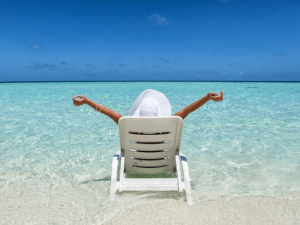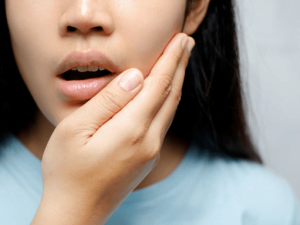What to do if you have a Dental Emergency on Holiday
15 July 2022 Lets face it, the last thing you think about when going on holiday is whether you are going to have a dental emergency whilst you are away or not. Getting a painful toothache or needing emergency treatment can ruin your holiday, so we have compiled everything that you need to know about how to seek emergency help from your dentist when on holiday.
Lets face it, the last thing you think about when going on holiday is whether you are going to have a dental emergency whilst you are away or not. Getting a painful toothache or needing emergency treatment can ruin your holiday, so we have compiled everything that you need to know about how to seek emergency help from your dentist when on holiday.
Prevention is key
Most dentists will advise you to seek an appointment within 2-3 months of going on holiday, especially when travelling abroad or if you have recently had restorative works such as veneers, root canal treatment or other such treatments. In particular, root canal treatment needs to be examined to ensure that your teeth do not become inflamed due to infection or rapid changes in air pressure or temperature whilst you are away.
If nothing else, your dentist can check on the restorative works, or if you have quite healthy teeth they will be able to advise on the best way to look after your teeth whilst you are away. If you require any replacement teeth fittings such as dentures you should absolutely book an appointment to replace these in good time before your holiday. You may find our other articles on how to best maintain your teeth can be helpful by clicking here.
Professional tips:
- Avoid chewing harder foods such as ice, popcorn and chewy, sticky or hard sweets.
- Don’t use your teeth to cut or bite down on tape or other materials.
- Research the amount of fluoride in the water supply of the place you are visiting. Fluoride levels can be much higher in hotter countries, so seeking alternative water supplies would be wise especially for children. Children tend to swallow fluoride toothpaste so if there are high levels of this in the water it may be advisable to use fluoride free toothpaste for your stay.
- Watch your intake of sugary or hot drinks. It is customary in most countries to be greeted with these types of drinks, but too much in a hotter or a much colder climate can impact the sensitivity of your teeth.
- Pack everything you need for your teeth including floss, interdental toothbrushes and dental tape. Dental tape can even come in handy for camping!
Seeking help
What steps you need to take depends on the seriousness of the injury and the location you are holidaying at, and most dental emergencies tend to be classified into three types: Pain, A lost or broken restorative piece such as a filling that causes a lot of discomfort, or an infection and/or traumatic injury. However other types of dental injuries such as facial swelling should not be dismissed as this can lead to the growth of an abscess.
Holidaying In the UK
- Call a local dentist. Even if they are closed their out of hours information should provide the nearest emergency treatment. Urgent dental treatments can cost, but if you are in receipt of free dental care then you should be able to claim the costs back, so keep any receipts. If you’re advised to come back for more treatment then this is considered non urgent and you will have to pay.
- If no local dentist is available, call 111 who can advise on the nearest emergency dentist near you and book you in.
- Go to your local A&E. If you are suffering from severe pain, heavy bleeding, or any injuries to your face, mouth or teeth skip steps 1 & 2.
Holidaying Abroad
Your first port of call should be your health insurance provider who can refer you to a local healthcare centre as well as in assisting with translation. However, without this, it can be a lot more difficult, especially if you do not speak the native language of the country you are holidaying in. Prevention really is key here, but if you are staying in a hotel then they may be able to advise you on the nearest dental treatment centre. Depending on where you are visiting, you may find that that country does not place as much priority on its dental services so you may need to assert that your teeth are a priority.
If you have any health conditions that could be affected by dentists works, ensure that you can communicate this, or that someone present can as to avoid any further health implications. You also need to ensure that the environment that the dentist is operating in is sterile. You can also tell by the local water supply, as aside from a clean practice high speed drills use water as a coolant. If the supply is dirty, the practice likely is too and you should seek alternative treatment.
Some last points to consider
- If you are suffering from a lost or broken restorative piece, only seek provisional treatment and seek more extensive care when you return home.
- Do not attempt to fix restorative dental pieces yourself as this may cause further damage.
 Some handy tips to alleviate the pain
Some handy tips to alleviate the pain
These methods are no substitute for an actual dentist specialist, but if you have any of the following common issues you may find that these will help to alleviate the pain whilst you are waiting to see a dentist.
Toothache
- Rinse your mouth with warm water
- Ensure there is no food or anything else stuck between your teeth by using dental floss, gently.
Broken, cracked or knocked out teeth
- Rinse your mouth with warm water
- Hold a cold compress against the afflicted area. A tooth can be reattached if this is done within 1-2 hours, so wrap up the tooth and keep it sanitary.
- Call a dentist immediately.
We hope that this provides you with everything that you need to know whilst holidaying away from our sunny home in Pateley Bridge. If you need to book an appointment prior to travelling or discuss any further tips with one of our dentists, then please contact us here.
